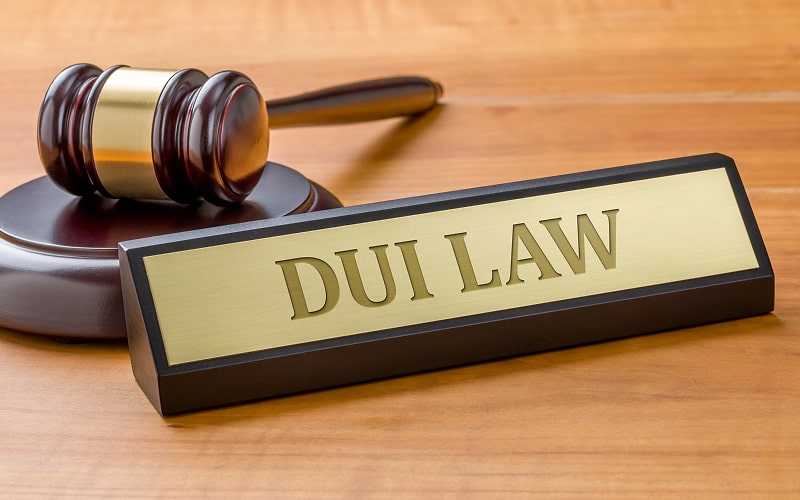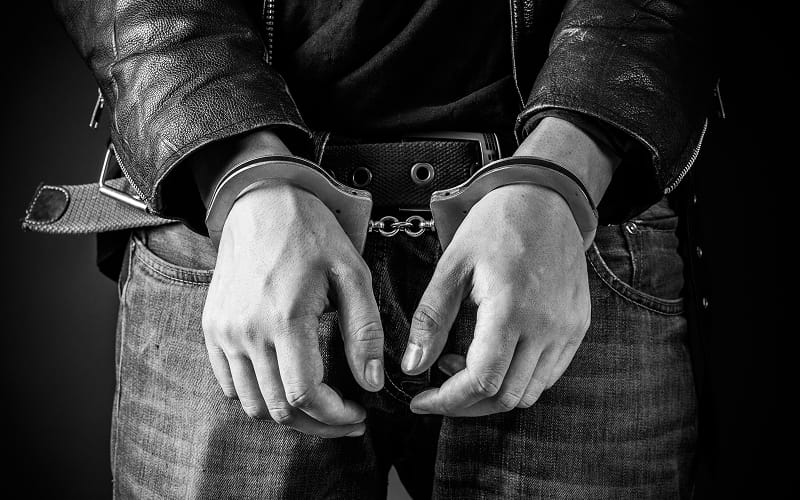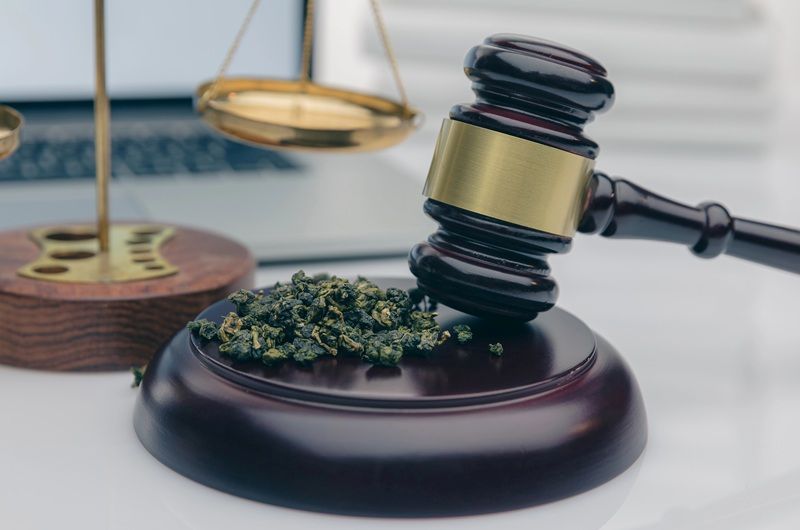A high BAC DUI charge in Virginia can feel like a storm threatening to upend your future, carrying severe consequences. However, understanding your defense options can be the lifeline that helps you regain control and protect your rights. With awareness and legal support, you can work toward minimizing the impact on your life.
This article explains Virginia’s DUI laws, highlighting the stricter penalties for those with high BAC levels. It also explores defenses to reduce penalties or challenge the evidence against you and answers common concerns surrounding the charge.

Overview Of Virginia’s High BAC DUI Laws
Driving under the influence (DUI), also known as driving while intoxicated (DWI), is a criminal offense in Virginia. The law prohibits operating a motor vehicle while impaired by drugs, alcohol, or a combination of both. You are considered intoxicated if you have a BAC or blood alcohol concentration of 0.08% or higher.
However, if your BAC reaches 0.15% or higher, the legal consequences become more severe. The state considers this level of impairment a serious risk to public safety, leading to stricter penalties. Prosecutors and judges treat these cases more aggressively due to the increased likelihood of accidents and injuries.
Understanding the repercussions is essential because a high BAC DUI charge can impact multiple areas of your life. Knowing what to expect can help you make informed decisions about your defense and legal options.
Penalties For A DUI With Over 0.15% BAC
Facing a DWI with a high BAC in Virginia comes with strict penalties under state law. The courts impose mandatory jail time, significant fines, and long-term consequences that can affect your daily life. Knowing what penalties apply can help you understand the seriousness of your case.
Jail Time & Fines
Virginia law mandates jail time for high BAC DUIs, even for first-time offenses. The penalties increase based on BAC levels and prior convictions, including:
- First-time offense (0.15% – 0.20% BAC): Minimum five-day jail sentence and fines starting at $250 (Virginia Code § 18.2-270).
- First-time offense (above 0.20% BAC): Minimum 10-day jail sentence and higher fines.
- Second offense (within 10 years): Minimum 10-day jail sentence for BAC between 0.15%-0.20% and 20-day sentence for BAC above 0.20%.
These sentences can increase if aggravating factors exist, including driving with a minor in the vehicle or causing an accident. Judges may also impose higher fines depending on the circumstances of the case.
License Suspension & Restricted Driving Privileges
A first conviction with a BAC over 0.15% can result in a 12-month license suspension. However, a second conviction within 10 years leads to a three-year suspension. You may be eligible for a restricted license, but this can require installing an ignition interlock device (IID). This device prevents the car from starting if alcohol is detected on your breath.
Criminal Record
A high BAC DUI conviction stays on your criminal record indefinitely. It can impact employment opportunities, as many employers conduct background checks. In addition, auto insurance rates can increase significantly because companies may view offenders as high-risk drivers.
If you hold a professional license, a conviction may lead to disciplinary action, affecting careers in fields such as law, medicine, and finance. Government and military personnel may also face security clearance issues or potential job loss.
However, defense strategies may help reduce the severity of these penalties or even result in a dismissal. Each case is unique, and the right approach depends on the details of your situation. Knowing your options can make a difference in your case’s outcome.
Potential Defenses Against A High BAC DUI Charge
A high BAC DUI charge in Virginia may seem difficult to fight, but defenses can challenge the evidence against you. Lawyers thoroughly review your case’s details to identify weaknesses in the prosecution’s claims. Below are common strategies used to fight the offense.
Challenge The Breathalyzer Test
Law enforcement uses a breathalyzer to estimate the alcohol concentration in your breath. However, these machines require routine maintenance and calibration to ensure accuracy. If not properly maintained, the results may be inaccurate or unreliable.
Errors can also occur when officers fail to follow proper testing procedures, such as skipping observation periods before administration. Any deviation from protocol may lead to false BAC readings, providing a solid defense. Moreover, certain medical conditions can increase mouth alcohol, leading to an artificially high BAC reading, including:
- Gastroesophageal reflux disease (GERD) can cause alcohol from the stomach to rise into the mouth.
- Diabetes may produce acetone, which breathalyzers sometimes misread as alcohol.
- Hypoglycemia can mimic intoxication symptoms, making field sobriety tests unreliable.
Attorneys gather medical records, consult professionals, and present evidence to challenge inaccurate BAC readings. Proving test inaccuracy can weaken the prosecution’s case and improve your chances of a better resolution.
Unlawful Traffic Stops & Lack Of Probable Cause
An officer should have a valid reason to pull you over. If the stop was made without probable cause, the evidence collected may be inadmissible in court. Your defense attorney can review dashcam footage and use witness testimony to challenge the legality of the stop. If it was unlawful, the case may be dismissed.
Violation Of Field Sobriety Testing Procedures
Field sobriety tests can be subjective and depend on an officer’s interpretation, making them prone to human error. To ensure accuracy, these tests must follow National Highway Traffic Safety Administration (NHTSA) guidelines.
However, if an officer fails to administer the test correctly, the results may be unreliable and misleading. A defense lawyer can challenge the validity of these tests using professional testimony to demonstrate their inaccuracy.
A qualified criminal defense firm understands these strategies and can use them effectively. When hiring legal counsel, consider their experience handling similar cases and their ability to challenge flawed evidence. The proper support can help protect your future.
Fairfax County Criminal Attorneys Can Support You
At Fairfax County Criminal Attorneys, we understand the serious consequences of a high BAC DUI charge. Our team examines every detail of your case, from breathalyzer accuracy to police procedures, to identify possible defenses. We work to challenge flawed evidence and seek the best possible outcome for you.
Every case is unique, and we tailor our strategies to fit your situation. We guide you through the process, keeping you informed and prepared at every stage. If you are facing DWI charges, we are ready to fight for you.
In addition to providing legal support, we can also answer common concerns and frequently asked questions about DUI charges in Virginia. This knowledge can help safeguard your rights and avoid missteps that could affect your case.
Frequently Asked Questions About DWI In Virginia
Facing a high BAC DWI charge can be confusing, especially when dealing with nuances, legal penalties, and possible defense strategies. Below are some common questions that can help you better understand your situation and what to expect.
What Happens If You Drive With A Suspended License?
In Virginia, driving with a suspended or revoked license due to a prior DUI conviction is a serious offense. If you’re caught driving under these conditions, law enforcement can immediately impound your vehicle for 30 days. Upon conviction, the court may order an additional impoundment period of up to 90 days.
Moreover, penalties include mandatory jail time, additional fines, and an extension of the suspension period. Repeated offenses can result in severe consequences, including the possibility of a felony charge.
What If The Officer Didn’t Read Your Miranda Rights?
If an officer fails to read your Miranda rights before questioning you in custody, your statements may be inadmissible in court. However, this does not automatically dismiss your DUI case. Prosecutors can still use breathalyzer results, field sobriety tests, and officer observations as evidence.
Miranda rights only apply to custodial interrogations, so their absence may not affect the case if no questioning occurred after the arrest. An attorney can assess whether a violation occurred and how it impacts your defense.
Can You Be Charged With DUI Without Driving The Car?

Yes, you can face DUI charges if you are in “actual physical control” of a vehicle. Sitting in the driver’s seat with the keys in the ignition or within reach may be considered by prosecutors as evidence of intent to drive while impaired. Even if the car is parked, you may still face charges. Courts consider factors like engine status, vehicle location, and your level of impairment.
A high BAC DUI charge in Virginia carries mandatory jail time, fines, and long-term consequences. The law considers a BAC of 0.15% or higher a serious offense, leading to stricter penalties. Possible defenses include challenging breathalyzer accuracy and citing medical conditions affecting BAC readings.
Legal representation can help reduce penalties or seek dismissal. Fairfax County Criminal Attorneys provides experienced DWI defense, guiding you through legal complexities and protecting your rights. If you face a high BAC DUI charge, seeking legal help immediately can improve your case’s outcome.




